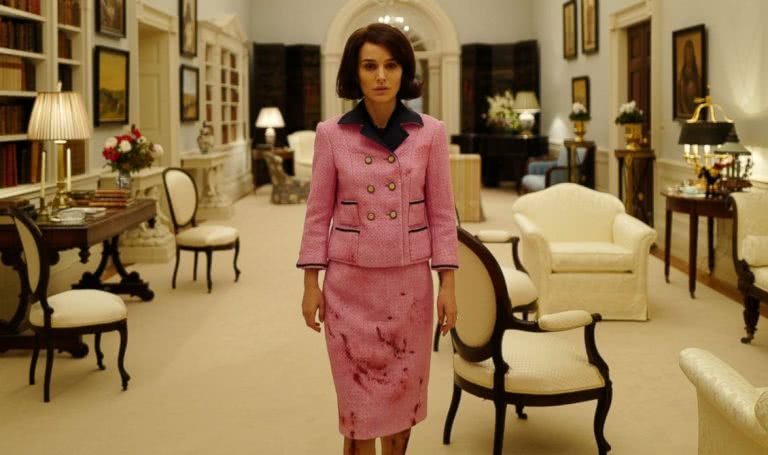★★☆
On paper, Jackie seems to have made all the right choices as a work of biographical drama.
It’s an impressionistic snapshot of a historical figure at a key moment in her life rather than a straightforward biopic, attempting to convey a sense of her fraught subjectivity rather than prosaically illustrating the history surrounding her. Its director is Pablo Larraín, the Chilean filmmaker known for his stylistically bold explorations of his own country’s turbulent recent political history in films like Tony Manero (2008) and No (2012). As casting goes, Natalie Portman is a solid choice as Jackie Kennedy in terms of physicality and demeanour, and her mannered acting style jibes well for a person who was herself figuring out a way to publicly act out her own grief in the wake of her husband’s tragic assassination.
That linchpin moment is teased throughout the film and then finally revealed in all its gruesome detail toward the end, which is a questionable structural tactic. And while Jackie jumps back and forth in time in a deliberately fragmented manner, its screenplay by Noah Oppenheim (Allegiant, The Maze Runner) is entirely conventional in the manner it literalises its self-evident themes of performance and myth-making, not only in the dialogue between Jackie and Bobby Kennedy (Peter Sarsgaard) but also with a fictional journalist (Billy Crudup) and priest (John Hurt).
Portman’s performance, too, seems to be beamed in from the kind of boilerplate Oscar-bait biopic that the film strenuously attempts to separate itself from. Despite the efficiency of her impersonation, it’s an emotionally limited performance that alternates between robotic poise and histrionics with little in the way of nuance.
Jackie works best as a purely textural experience, with grainy period-specific 16mm handheld cinematography by Stéphane Fontaine and a woozy, minor-key score by Mica Levi (Under The Skin) aiding the numbed, depressive mood that Larraín conjures. Even then, the superficially arty decor has the effect of highlighting the screenplay’s deficiencies.
It all adds up to a mercifully brief (90-ish minutes) but sluggish experience that offers little in the way of pleasure or enlightenment. A film about grief shouldn’t be a breezy jaunt, but that shouldn’t give it license to be a slog either.
Jackieis in cinemas now.

































